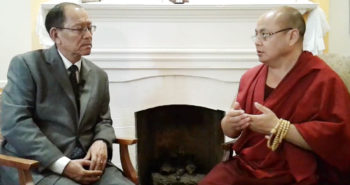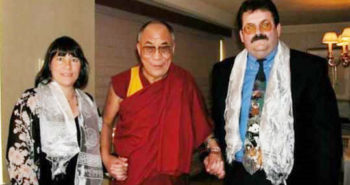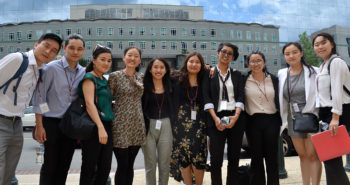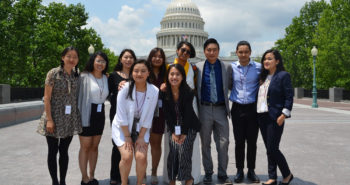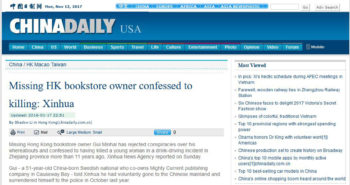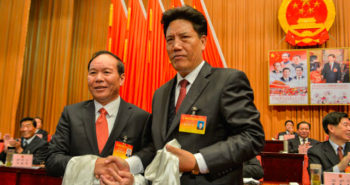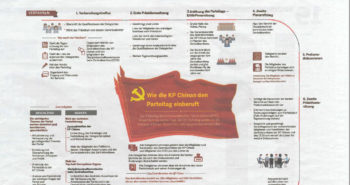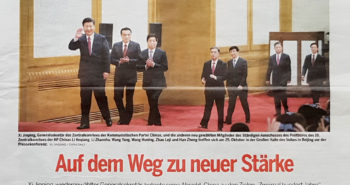Ok Google: What is evil? That’s a question the world’s most popular search engine might need to ask itself. As Google reportedly develops plans for a censored search app in China, the International Campaign for Tibet has signed a letter insisting that the tech behemoth scrap the project immediately. The letter, written by the International Tibet Network and signed by 170 groups worldwide that are working on Tibet, says “There is little doubt that ‘Dragonfly,’” the proposed app, “would have an immense negative impact on the human rights of Chinese citizens, Tibetans, Uyghurs and other...
Ten years ago this month, a bold documentary exposed the repression ordinary Tibetans faced under the Chinese occupation of their country. A decade later, the situation in Tibet has only gotten worse. The documentary, “Leaving Fear Behind,” features interviews with average Tibetans describing, in heart-wrenching detail, the inhumanity of Chinese rule, as well as their feelings about the then-upcoming 2008 Summer Olympics in Beijing. I started my new job as Communications Officer with the International Campaign for Tibet (ICT) earlier this summer, and one of the first things my colleague John...
It is with deepest sorrow that ICT and The Rowell Fund for Tibet announce the passing of Nicole Rowell Ryan on Sunday, April 29th, 2018, at the age of 54. Nicole, a member of the Rowell Fund Advisory Board, was part of the ICT family since 2003 when she, along with former ICT President John Ackerly, developed the Rowell Fund in honor of her late father Galen Rowell. Galen, a famed photographer and mountaineer, was an avid supporter of the Tibetan cause during his life. Nichole was instrumental in the success of the Rowell Fund over the years. Her husband, Ray Ryan, remembers her insistence...
We would often sit facing one another in a fashion identical to conference rooms. Throughout the week of the program, we have sat in the same manner in varying locations under differing circumstances. There was a sense of intimacy in that seating arrangement, the comfort felt was an embodiment of a rooted connection that formed fast and firm amongst us. Although, we all carried starkly distinct assortment of life experiences, the ceaseless tug of a unique cultural identity on our hearts served as the undeniable, unifying factor for us. In other words, the participants of the Tibetan Youth...
If you are familiar with the Tibetan freedom movement, you probably also know the importance of continued support from the international community to check China's oppressive rule in Tibet. Be it China's worry about its image on the global stage or practical trade interest, various forms of support from the international community have been the main source of force for keeping Tibetan issue alive. Needless to say, the US congressional support played an instrumental role to show China that they cannot do whatever they want in Tibet.
I’m not by any means a football fan, but the arrival of the Tibetan team in London for the CONIFA World Football Cup – bringing together dispossessed nations and others locked out of FIFA - kicked off something rather special. For a start, no other team had been given a personal blessing by the Dalai Lama, who in a special audience before their visit to the UK urged them to set an example of compassion. They are the only team in the history of football, no doubt, to present their opponents with khatags, white blessing scarves, before the game – and to assert that winning or losing are not...
Virtually unnoticed by the general public, the Süddeutsche Zeitung seems to have decided to discontinue supplements from the Chinese Communist Party’s China Daily. News of the termination of this presumably very lucrative business relationship was tucked away in a third-page article by the Süddeutsche Zeitung’s correspondent for China, who claimed that the “China Watch” supplement was only meant as a one-time affair. In November 2017, things certainly sounded different.
Every year, the Chinese governance system mandates the holding of the meeting of the "Two Sessions" in the provincial level administrative divisions around this time. The two sessions are those of the People's Congress (the local version of the National People's Congress) and the People's Political Consultative Conference (state-level Chinese People's Political Consultative Conference, CPPCC).
It has been just over a week since we addressed the issue of the supplement to the Süddeutsche Zeitung taken out by the Chinese state’s mouthpiece, China Daily. Meanwhile the executive board of the Süddeutsche Zeitung has responded to our letter, a response that is as predictable as it is disappointing: the Süddeutsche Zeitung will continue to publish China Daily supplements. The Süddeutsche Zeitung claims that articles and advertising are separate and there is no reason to be concerned about critical reporting on China.
Can democratic societies get the upper hand against authoritarianism if their own institutions sell out to dictators? Since November 10, we have had to ask this question again—also and especially in Germany. It has become particularly pressing since Germany’s daily newspaper Süddeutsche Zeitung, in its own words “Germany’s largest nationwide quality daily” notable for its “opinionated and independent journalism,” published a supplement from the state-run China Daily. Headlined “China Watch,” it promises to reveal “All you need to know.”


